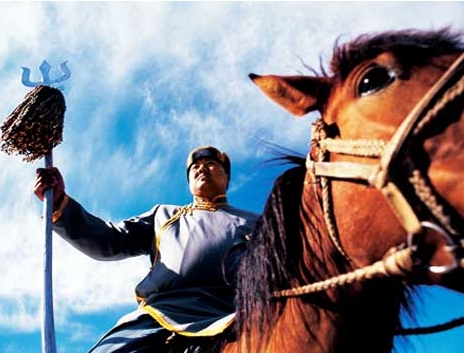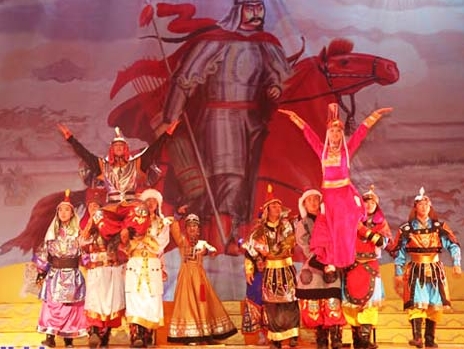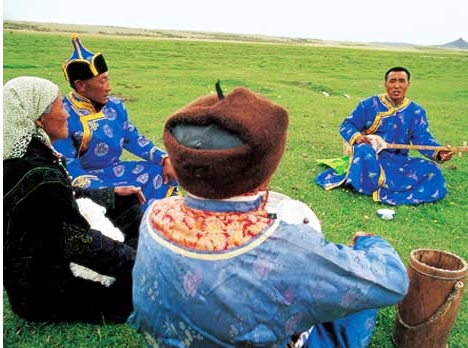
Jangar is a narrative poem presented in the form of singing and story telling popular among the Mongolian ethnic group in China, especially in areas with Mongolian populations in Xinjiang. It is rated as China's top three heroic epics along with King Gesar and Manas.
Jangar was orally created by the people from Mongolian Tuerhute Tribe in the 13th century and handed down to modern times by word of mouth. There wasn't a written text until the early 19th century. Later, the epic was introduced to other parts of the country and foreign nations in Kalmyk, Todo and Mongolian texts etc.

According to legend, Jangar was the son of the headman in Benba area. He had exceptional wisdom, noble character, amazing strength and excellent martial arts since young. From the tender age of seven, Jangar kept making remarkable achievements. He was later selected as khan by the people.
Warriors led by Jangar gradually expanded their military power, wealth and territory. Then, they established a perfect homeland with Benba at the center. It was an area with mild weather all the year round. People there led a peaceful life filled with love and had ample food and clothing.

However, the happy life led to the jealous hatred of Jangar's enemies, who targeted skilful craftsmen under Jangar, his good horses and righteous wives on their seizing sprees. Focusing on the enemies' bride-seizing, looting and meadowland occupying, the epic unfolds one heartquaking battle scene after another. This epic helps you understand the economy, culture, life customs, political systems and other aspects of ancient Mongolian society.